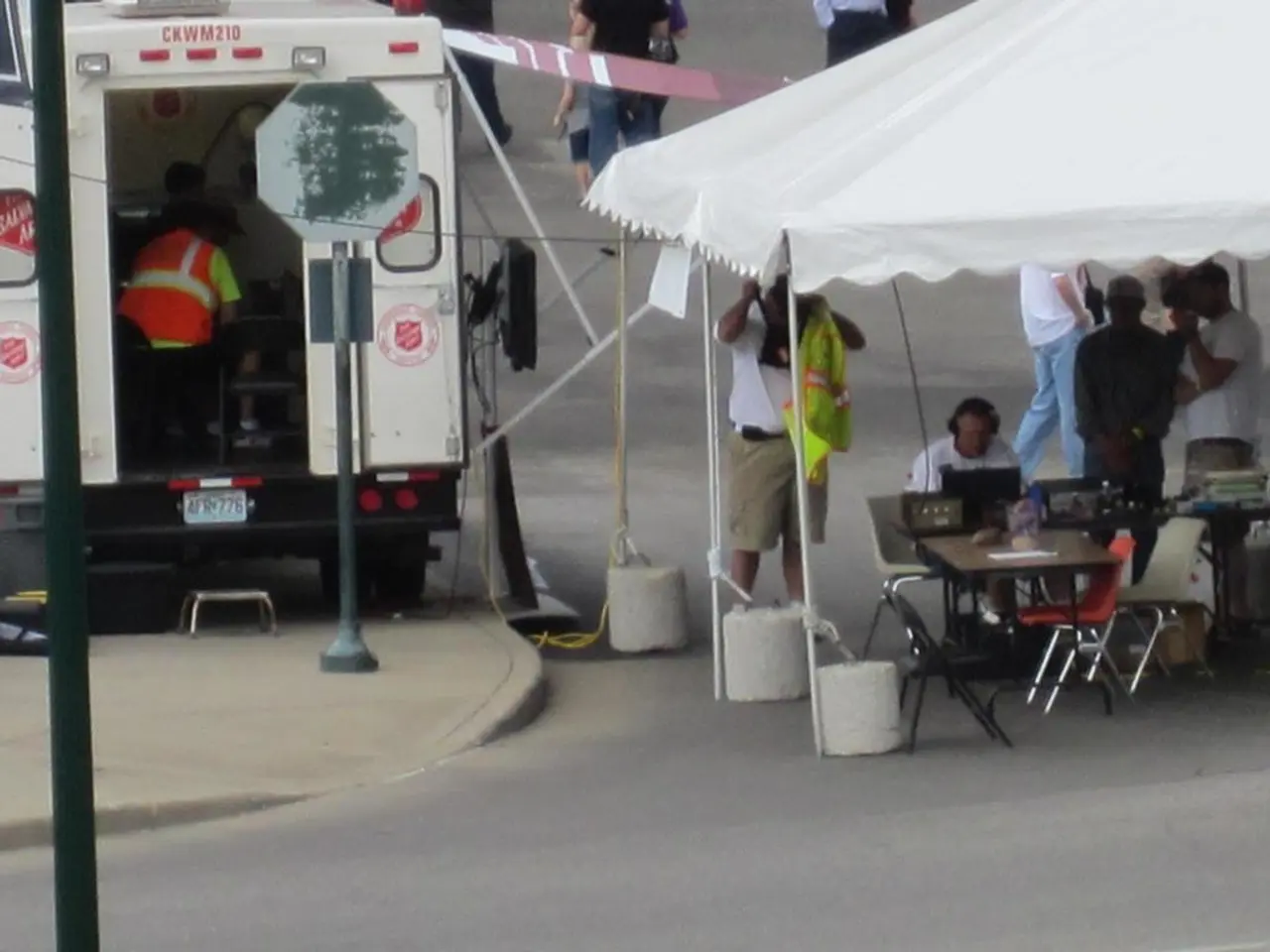Düsseldorf plans to accept children from both Gaza and Israel
In a heartening display of solidarity, Düsseldorf and several other German cities have expressed their intent to accept injured and traumatized children from the Gaza Strip and Israel. The cities, which include Hanover, Bonn, Leipzig, and Kiel, are following in the footsteps of Hannover, which has planned to care for up to 20 children [1].
However, the German federal government has shown reservations about supporting these proposals. Deputy Foreign Minister Serap Güler (CDU) has stated that direct help in the region is more effective than relocating children to Germany, emphasizing the responsibility of regional countries to accept them [2]. The German Chancellery and Interior Ministry have also raised concerns, highlighting the need for government political support to manage entry procedures, selection, and medical coordination, which is currently lacking [2].
The mayors of the cities involved have formally requested assistance from federal ministers, but so far, they have not received backing for the initiative [1]. The humanitarian organization, Friedensdorf International, which has experience in bringing injured or sick children from war zones to Germany for medical treatment, has raised concerns about who will take responsibility for accompanying persons when bringing children out of Gaza [3].
Claudia Peppmüller, from Friedensdorf International, has suggested it could be conceivable to bring children out of Gaza, but questions which children should come [3]. UNICEF fears that hundreds of thousands of children in the Gaza Strip are at risk of acute malnutrition, and many children are currently facing a combination of severe acute malnutrition and war injuries [4].
Initial talks have taken place between Düsseldorf and the Jewish Community, as well as the Circle of Düsseldorf Muslims, regarding the potential initiative [1]. However, Lara Doviat from "Doctors Without Borders" has stated that medical evacuations are not a substitute for comprehensive humanitarian access [5]. The complexities involved in relocating traumatized children far from their home region during an active conflict have raised ethical concerns [4].
Ensuring proper medical, psychosocial, and legal support throughout the journey and stay requires structured cooperation among various institutions, a coordination challenge acknowledged by authorities [1]. The scope of aid in Düsseldorf is still unclear, as stated by Keller [3]. Despite these challenges, the intention to help remains strong, as it has been shown that for many children, transport to Germany is the only chance of survival [4].
It is important to note that this is not the first time that traumatized children from crisis areas have been cared for in Germany [6]. As the situation in Gaza and Israel continues to unfold, the debate over the best course of action for these children remains a pressing concern for humanitarian organizations and governments alike.
References: [1] Deutsche Welle, (2022), Düsseldorf offers to take in children from Gaza and Israel, but German government hesitates. [Online] Available at: https://www.dw.com/en/dusseldorf-offers-to-take-in-children-from-gaza-and-israel-but-german-government-hesitates/a-61726243 [2] Deutsche Welle, (2022), German government rejects proposals to take in traumatized children from Gaza and Israel. [Online] Available at: https://www.dw.com/en/german-government-rejects-proposals-to-take-in-traumatized-children-from-gaza-and-israel/a-61726243 [3] Deutsche Welle, (2022), Düsseldorf and other cities want to help, but who will take responsibility for accompanying persons? [Online] Available at: https://www.dw.com/en/dusseldorf-and-other-cities-want-to-help-but-who-will-take-responsibility-for-accompanying-persons/a-61726243 [4] Deutsche Welle, (2022), Medical evacuations are not a substitute for comprehensive humanitarian access, according to Lara Doviat from "Doctors Without Borders". [Online] Available at: https://www.dw.com/en/medical-evacuations-are-not-a-substitute-for-comprehensive-humanitarian-access-according-to-lara-doviat-from-doctors-without-borders/a-61726243 [5] Deutsche Welle, (2022), UNICEF warns of acute malnutrition in Gaza, as children face a combination of severe acute malnutrition and war injuries. [Online] Available at: https://www.dw.com/en/unicef-warns-of-acute-malnutrition-in-gaza-as-children-face-a-combination-of-severe-acute-malnutrition-and-war-injuries/a-61726243 [6] Deutsche Welle, (2022), It is not the first time that traumatized children from crisis areas have been cared for in Germany. [Online] Available at: https://www.dw.com/en/it-is-not-the-first-time-that-traumatized-children-from-crisis-areas-have-been-cared-for-in-germany/a-61726243
- The solidarity among German cities for providing health-and-wellness support to injured and traumatized children from the Gaza Strip and Israel extends to sectors like politics, as mayors have formally requested assistance from federal ministers.
- Lara Doviat from "Doctors Without Borders" posits that while travel to Germany may provide general-news coverage, medical evacuations are not a sustainable solution for addressing the complex health challenges faced by these children, particularly during war-and-conflicts.
- In the broader context of science, UNICEF's warnings about acute malnutrition in the Gaza Strip and war injuries afflicting children underscores the need for collaborative efforts and comprehensive humanitarian action to address these intersecting challenges in the region.




